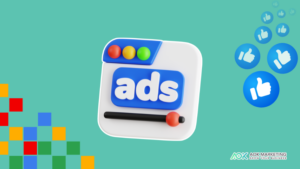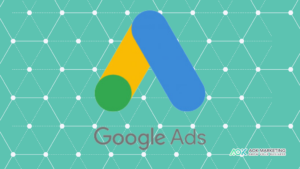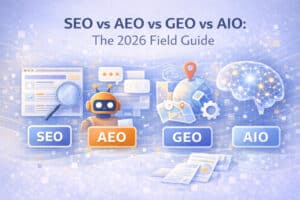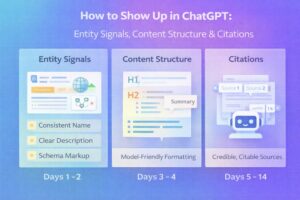Google Ads vs Facebook Ads: Which One Should You Choose in 2025?
Choosing between Google Ads and Facebook Ads has always been one of the most common dilemmas for businesses investing in digital marketing. In 2025, both platforms have evolved dramatically—but they still serve different purposes and offer unique strengths.
If you’re a business owner or marketer asking, “Which one should I use?”, this article will break it down for you. We’ll explore the key differences, strengths, and which platform is better based on your goals, budget, and audience.
Understanding the Core Difference
Before diving into which is better, you need to understand the fundamental difference between the two:
– Google Ads (formerly AdWords) is an intent-based platform. People are actively searching for a product or service—meaning they already have a need.
– Facebook Ads (Meta Ads) is an interest-based platform. You’re showing ads to people who may not be searching but match your ideal customer profile.
Both are powerful—but they work differently.

When to Use Google Ads in 2025
Google Ads continues to dominate when it comes to high-intent traffic and immediate visibility.
Pros of Google Ads:
– Reaches users when they’re actively searching
– Great for bottom-of-the-funnel conversions
– Strong keyword-based targeting
– Easy to measure ROI through leads, calls, or purchases
– Massive reach via Search, Display, YouTube, and Shopping
Ideal for:
– Local services (e.g., plumbers, dentists, digital marketing agencies)
– E-commerce brands with ready-to-buy customers
– B2B companies offering time-sensitive solutions
– Anyone needing quick, trackable results
Updated Features in 2025:
– AI-enhanced bidding strategies for better ad spend optimization
– Enhanced Responsive Search Ads with performance insights
– Smarter campaign segmentation using Performance Max
When to Use Facebook Ads in 2025
Facebook Ads (now under the broader Meta Ads ecosystem including Instagram, Messenger, and Audience Network) excels at brand discovery, awareness, and retargeting.
Pros of Facebook Ads:
– Laser-focused demographic and interest targeting
– Visual-first ad formats ideal for storytelling
– More affordable cost-per-click (CPC) than Google in many industries
– Excellent for building brand awareness and nurturing cold traffic
– Easy integration with Instagram for expanded reach
Ideal for:
– DTC and lifestyle brands with strong visuals
– Subscription services and online coaches
– Local businesses trying to build a community
– Startups building a brand identity
Updated Features in 2025:
– Meta Advantage+ AI automation for better ad delivery
– Integration with Threads and WhatsApp for cross-platform reach
– More granular retargeting using Meta’s Pixel and Conversions API
Google Ads vs Facebook Ads: A Head-to-Head Comparison
Here’s how they compare across key marketing areas:
1. Audience Intent
– Google Ads: High intent (people searching for something now)
– Facebook Ads: Passive browsing (discovery-driven)
2. Targeting Capabilities
– Google Ads: Keyword and location targeting
– Facebook Ads: Demographics, interests, behaviors, lookalikes
3. Ad Format
– Google Ads: Text, search, display, video (YouTube), shopping
– Facebook Ads: Image, video, carousel, reels, stories
4. Cost
– Google Ads: Higher CPC, but better for transactional searches
– Facebook Ads: Lower CPC, better for awareness and remarketing
5. Conversion Tracking
– Google uses conversion tracking and GA4
– Facebook relies on Meta Pixel and Conversions API
Which One Converts Better?
It depends entirely on your business model and where your audience is in the funnel.
– If you need immediate leads or sales, Google Ads is often the better performer.
– If you’re looking to build a long-term audience, grow brand loyalty, or nurture potential customers, Facebook Ads offers more creative freedom and engagement.
For many brands, the winning strategy in 2025 is not either/or—but both, used strategically together.
How to Use Both Platforms Together
Combining Google Ads and Facebook Ads can amplify your results. Here’s how:
Step 1: Capture Intent with Google Ads
– Run search campaigns targeting high-intent keywords
– Use Performance Max for cross-channel conversion goals
– Track leads, calls, or product purchases directly
Step 2: Retarget with Facebook Ads
– Retarget website visitors or people who clicked on your Google Ads
– Show them testimonials, product demos, or offers
– Use visual storytelling to warm them up and drive conversions
Step 3: Use Facebook Ads for Top-of-Funnel Awareness
– Run campaigns focused on reach, engagement, and video views
– Build custom audiences based on views or interactions
– Push those users down the funnel using Google search or retargeting
Budget Allocation Tips for 2025
If you’re wondering how to split your marketing budget, here’s a quick framework:
– New business or product? Start with 70% Facebook, 30% Google (focus on awareness)
– Local service business? Go 70% Google, 30% Facebook (focus on high-intent)
– E-commerce? Test both with equal budgets, then optimize based on ROAS
Always start with a testing phase and let the data guide your spend.
Final Thoughts
Both Google Ads and Facebook Ads remain essential tools in the digital marketing toolbox—but which one you choose depends on your goals, budget, and business model.
In 2025:
– Google Ads wins on search intent, fast conversions, and immediate ROI
– Facebook Ads wins on creative engagement, brand discovery, and long-term audience growth
The best approach? Understand each platform’s strengths, and use them together to dominate your market at every stage of the funnel.
Need help deciding what’s best for your business? Our digital marketing agency specializes in paid ad strategies tailored to your goals. Reach out for a free consultation and ad audit.
About The Author
Marketing Team
The AOK Marketing Team is a diverse group of amazing individuals driven to help all of our clients succeed. Great people are everywhere, and we believe that people should control their workday, their work environment, and where they live. We have team members in 9 countries: United States, Canada, Egypt, Belgium, Ireland, Australia, India, Pakistan, and Hong Kong.
How can we help you?



